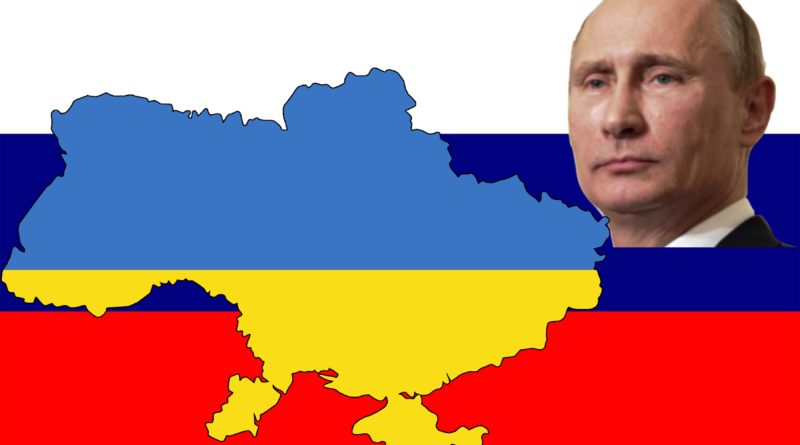Russia invades Ukraine
On Feb. 24, Russia began its invasion of Ukraine by firing missiles into the country in the early morning. Before the invasion, Russian President Vladamir Putin, in a pre-recorded televised broadcast, said that he had ordered a “special military operation” to take place in Eastern Ukraine so he can “demilitarize” and “de-nazifi” the nation.
“I’m authorizing additional strong sanctions and new limitations on what can be exported to Russia. This is going to impose severe costs on the Russian economy, both immediately and over time,” said United States President Joe Biden on Feb. 24.
Why is Russia invading Ukraine?
Russian president Vladimir Putin, said in a statement on Feb. 21, that citizens of Ukraine already called themselves Russians even before it became part of the USSR in 1919. Along with this propaganda, he adds that Ukraine has always been Russian and the move to be independent is a product of the West.
In 2014, Russia took control of the Crimea peninsula in Ukraine. The United Nations General Assembly members called this move “illegal and invalid.” One of Russia’s requirements for peace with Ukraine is for the United Nations to recognize Crimea as a part of Russia.
Noah Zerbe, Cal Poly Humboldt global politics and political science professor said there are many narratives as to why Putin invaded Ukraine. One of them being that Ukrainians see themselves as “brothers of Russia” of which has been a product of Russian propaganda.
What’s happening in Ukraine?
Since the invasion, the people of Ukraine have been met with bombings, tanks and daily gun fights with the Russian military. Over half a million people, made up of women and children, have already left the country. Males aged 18-60 have been ordered by the Ukrainian president ,Volodymyr Zelenskyy, to stay and join the fight to defend their country.
“The concern that we have would be that authoritarian leaders rarely don’t do well when they step down,” said Zerbe. “My concern is that the incentives for putin are to continue this conflict to the bitter end.”
In the first week of March, talks with the Ukraine and Russian officials in Belarus did come to a resolution. After the meeting, Russia continued to fired missiles that struck Kryiv’s main TV tower as well as a Holocaust memorial said Ukrainian President Volodymyr Zelensky on Twitter.
How is this affecting the U.S.?
“The United States will not engage with Russian forces in Ukraine.” said President Joe Biden in his State of the Union Address on March 1.
The President also said that the American military is in North Atlantic Treaty Organization territories and will defend every inch of territory if Putin decides to move into NATO nations.
Russia is the second largest fertilizer producer in the world and so as a result of the sanctions in Russia prices of fertilizer have gone up for U.S farmers. Patrick Donnelly, senior financial analyst at Third Bridge, said it is estimated that as a result, food prices will go up in the upcoming year.
“With the sanctions imposed by the United States, European Union and a number of other nations, the Russian ruble has taken a big hit,” said Zerbe. “Although the sanctions not only have negatively impacted Russia but the world as well. The price of oil has increased $100 a barrel, making it the highest it’s ever gone up. As well as the price of iron and steel.”




